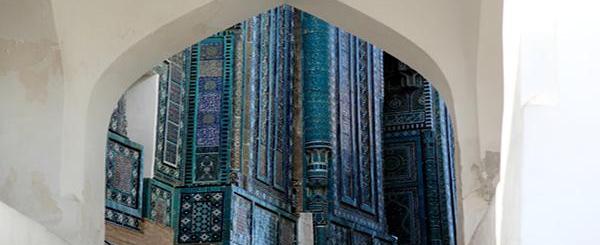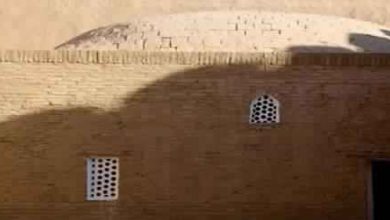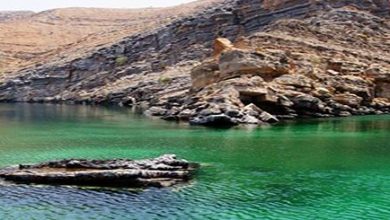ALI IBN ABI TALIB

• The Prophet SAW had wanted to perform the Umrah and wanted it be known to the Quraish that he came in peace. He assigned ‘Ali to draft the agreement. However when the polytheists of Quraish insisted the erasure of the words “Messenger of Allah”, ‘Ali refused to comply. His love and veneration for the Messenger SAW was evident. The Prophet SAW himself erased those words for he was adamant in creating a peaceful treaty, The Treaty of Hudaybiya.
• The campaign to Khaybar in 7 A.H. was deemed as a conquest of a strategic Jewish military colony which was their last foothold in the Arabian Peninsula that also served as an observation post for them in eyeing the activities of the Muslims. The Prophet SAW started besieging the fortresses of Khaybar and conquered them one by one. The Prophet SAW gave the banner to ‘Ali and said: “I shall give this flag to a man at whose hands Allah will grant victory; he loves Allah and His Messenger, and Allah and His Messenger love him.” In this difficult battle with the Jews, he challenged the leader named Merhab and killed him, thus conquering the town.
• Conquered Mecca as pagans had broken their covenants. ‘Ali commandeered one wing of the army, entered the city peacefully and proceeded to destroy the stone idols.
• In 9 Hijrah the Prophet SAW led an army to Tabruk to the northern border of Arabia to deter the Romans who were trying to destroy the Islamic State. He left ‘Ali to be the ruler of Medina in his absence. ‘Ali was not satisfied because he wanted to join the Prophet SAW in battle and felt the shame at being left behind. The Prophet SAW said: “Do you not like to be to me like Harun was to Musa?” It was only upon hearing this analogy, Ali was then satisfied.
• When the Prophet SAW sent the Muslims to perform the pilgrimage to Mecca, the Prophet SAW sent ‘Ali to read a proclamation, “No idolater shall after this year perform pilgrimage. No one shall run around the Ka’bah naked. Who has a treaty with the prophet it shall continue binding till its end. For the rest, four months are allowed to every man to return to his territory, after which there will exist no obligations on the Prophet SAW except to war to those people with whom treaties have been made.”
• In the 10th year of Hijrah, the Prophet SAW sent ‘Ali to preach Islam to the people of Yemen. It was a very successful campaign for the entire Hamadhan tribe accepted Islam.
The Death of the Prophet SAW
After the Prophet SAW returned from the farewell pilgrimage and particularly having heard the Prophet SAW address the Muslims in Mina of the perfect and complete religion that is Islam, ‘Ali guessed that the Prophet SAW was soon to pass away.
When the Prophet’s SAW condition worsened, Al-Abbas bin Abdul Muttalib held ‘Ali by the hand and said: “In three days you, by Allah, will be ruled (by somebody else). And by Allah, I feel that Allah’s Messenger SAW will die from this ailment of his, for I know how the faces of the off-spring of Abdul Muttalib look at the time of their death. So let us go to Allah’s Messenger SAW and ask him who will take over the caliphate. If it is given to us, we will know it, and if it is given to somebody else, we will request him to tell the new ruler to take care of us.” ‘Ali said, “By Allah, if we asked Allah’s Messenger for it (the Caliphate) and he refused to give it to us, the people will never give it to us after that. And by Allah, I will not ask Allah’s Messenger for it.” (Al Bukhari)
Examples of his Moral Character of Justice:
‘Ali was known to possess an acute sense of justice for whatever he received in the treasury, he would distribute equitably without favour to family. Even when in battle and having overpowered his foes, ‘Ali did not ill-treat them. Once when he was about to cut off the head of his victim, the desperate man spat on his face. ‘Ali spared his life and released him, saying that if he had killed the man then, his motive will not remain purely for the cause of Allah but due to personal anger. After that ‘Ali ran away from the man that he had just overpowered, afraid that he would be influenced by his personal anger and act upon it. Upon seeing this, the man who was about to be killed by ‘Ali’s hands, took the shahadah and embraced Islam.
In another incident, ‘Ali’s shield went missing after the battle of Siffin. He found it with a Christian man and it was instantly recognized by many because of its distinctive decorations and markings. ‘Ali, who was already Caliph at the time, took the man to the judge as per the Islamic ruling instead of simply confiscating the shield. The judge asked the Christian man to respond to the allegation of the Amir al Mukminin (the Governor of the Muslims). The Christian claimed that the shield was his, but also that Amir Al Mukminin was not a liar. To this, ‘Ali replied that the judge had no right to refer to him as the “Amir al Mukminin” when he was appearing before the judge as a normal citizen. He went on to say that the Christian man was in the right because ‘Ali had no evidence with him. The judge ruled in favour of the Christian, who took the shield and left. A few steps later, he came back, and he said “I bear witness what I saw now is the justice of Messengers and Prophets. And the Amir Al Mukminin went to the judge to take his rights from me! I bear witness there is no one worthy of worship except Allah, and I bear witness that Muhammad SAW is the Messenger of Allah.” After embracing Islam, the man admitted, “The shield is yours. I followed the army, and in a certain time I took it from you.” Later on, people bore witness this man became one of the noble characters and died as a soldier of Islam at the Al Nahrawan battle.
Imagine how desperate the ummah is for such justice and fairness today! Look at his humbleness and humility in dealing with the average man, or even the one who stole from him. Most leaders would bypass normal judicial procedures to claim their rights, and many of them are motivated by their personal emotions instead of fear of Allah.
His Ultimate Noble Character:
Once ‘Umar complained to the Prophet SAW that ‘Ali never gave him salam (Islamic greetings) when they met. The Prophet SAW summoned ‘Ali and asked him to explain his actions. ‘Ali said that he had heard the Prophet SAW saying that whoever initiates a greeting to his brother in Islam first, will be given a palace in jannah (a high reward), and he wanted that reward to be bestowed upon ‘Umar. This was why every time he met ‘Umar, he delayed his greeting, so that ‘Umar would initiate the greeting and be rewarded for it.
In another incident, ‘Ali entered the house and gave his greetings to his wife, Fatimah, the most beloved daughter of the Prophet SAW. She had a pain in her stomach, and requested ‘Ali to take the few dirhams she had to buy some pomegranates for her. Ali ibn Abi Talib obliged and purchased a pomegranate from the market. On the way home, a poor man in the street waved to him, saying “Ya ‘Ali, I’m a very poor man. Do you know what I want? I want a pomegranate.” Without any hesitation ‘Ali immediately gave the poor man the pomegranate, explaining that he had bought it for his wife but gave it to the poor man instead for the sake of Allah. The poor man offered to take half the pomegranate only, but ‘Ali refused and instead went home empty handed. He explained the incident to Fatimah when he got home. Immediately, she replied, “Best, what you did. It is better that you give it to the poor person.” Some time later, there was a knock on the door. It was Salman Al Farisiy, bearing a tray of nine pomegranates in his hand. He said that a man had come to the Prophet SAW, asking him to give the pomegranates to ‘Ali. ‘Ali enquired whether this was all that the Prophet gave him. Salman Al Farisiy revealed that there was a tenth pomegranate which he had purposely concealed! After a while, ‘Ali enquired with the Prophet SAW what actually transpired. Rasulullah SAW replied that the poor man was Angel Jibreel, who, in the form of a man, came to check ‘Ali’s iman. After ‘Ali passed the test, Allah sent down the ten pomegranates for the obedience and sacrifice of ‘Ali and his wife for the path of Allah – for Allah rewards tenfold for every good deed performed.
How much the Companions loved each other to the point that they wanted not only to give to each other in the dunia, but also the preference to give each other the reward and high status in jannah. Look at the ultimate generosity, kindness and love for each other. Where is our iman compared to theirs, our relationship with each other, and our priority in life?
His Caliphate Rule:
Following the death of ‘Uthman, the senior companions insisted that ‘Ali ibn Abi Talib take over as leader of the Islamic State. At the insistence of Az-Zubair and Talhah, he accepted the position as the Fourth Right Guided Caliph.
The following is from his inaugural speech:
“I advise you O slaves of Allah to fear Allah, for god-fearing is the best advise Allah’s slaves might give to one another. It is also the closest deed to His pleasure, and the most yielding of the best results in His sight. No doubt, you are ordered to fear Allah and you have been created to be faithful.
So you should beware of Allah as the Almighty has warned you of Himself. Indeed, He has warned you of a strong violence if you do not comply to his order. Furthermore, you should fear Allah so much. You should do the good deeds without the intention of showing off or gaining good reputation. Whoever does the good deeds for anything other than for the sake of Allah, surely Allah would make him suffer from the evil consequences of what he has done. Whoever does good deeds sincerely for the sake of Allah, certainly Allah would be his supporter and He would give him the goodness of his intention.
You should fear of Allah’s punishment, for He has never created you vainly nor has He left anything of your affairs to no purpose. He made you, learnt your secrets, recorded your deeds, and then decreed your terms. So let not the world deceive you with its vain hopes, for no doubt, it is to beguile its people, and how haughty he is, who is deceived by it. The hereafter is the abode of eternal stay.”
What an unusual first speech for a Caliph. It is more a speech of a devout man rather than a Caliph. He was only concerned about living piously for the sake of Allah and to have those around him also live pious lives.
Upon ascension to the Caliphate, ‘Ali ibn Abi Talib inherited the turmoil which began with the killing of Uthman. Details of this can be found in historical accounts, but suffice to say, ‘Ali refused to seek revenge on Uthman’s killer in order to avoid bloodshed of the ummah. This gave rise to several civil battles. Thus all efforts to spread Islam were unfortunately channeled towards resolving these troubles with the situation within the state being tumultuous to say the least.
Ali’s death
The dissenters had set out to assassinate ‘Ali, Mu’awiyah and Amr bin Al ‘Aas. One night, one of the conspirators, Abdur-Rahman bin Muljim came into the mosque in Kufar and hid in it, aware that ‘Ali would be offering his fajr prayers in the morning. As he began to pray, Abdur-Rahman came forward and stabbed him several times with a dagger, penetrating on the brain through the scar of an old wound.
After he was found lying wounded on the prayer mat, ‘Ali said to his son: “Treat the man kindly and give him food and water. If I die, his life is left to justice, and he shall be slain for the deed he had done; but do not mutilate him, for that was forbidden by the Prophet SAW.”
From the miracle of prophethood was that the Prophet SAW described to him the way ‘Ali’s martyrdom would occur. Ammar bin Yasir reported that the Prophet SAW said to ‘Ali” “The most wretched of men are two: the people of Thamud who killed the camel and the one who would strike you over here (i.e. on the head) until your beard is wet with your blood.”
On Friday, 20th Ramadhan, 40 Hijri, ‘Ali passed away. He was sixty-three. ‘Ali had always asked Allah that he die as a martyr for the cause of Islam and Allah accepted his prayers.
May Allah bestow His mercy on ‘Ali for his full dedication to the welfare of Islam and the Muslims. Let us recall one of his sermons:
“Certainly, Allah did not create you in vain. He did not neglect you. Rather, He has ennobled you with abundant provision. He has earmarked rewards for you. So fear Allah, O servants of Allah, and be diligent in your quest. Be earnest in righteous actions before the arrival of the destroyer of pleasures (death). “
THE FOUR RIGHTLY GUIDED CALIPHS – CONCLUSION
Such men were chosen by Allah to be the Companions of the Prophet SAW, the supporter of the Prophet SAW, and we can see from their characters that they lived the Message, they sacrificed completely for the Message, the love of Allah and his Messenger SAW, and the ummah, was above any personal gain. Even when they became the heads of the Muslim ummah, the Caliphate and the Amir al Mukminin, they showed even more sacrifice and high noble character and elevated Islam, justice and harmony. They left a legacy, to honour them in this life and in the hereafter. These people, the ones Rasulullah SAW advised to imitate their footsteps, should be our role models.
For us today, may Allah allow us to read about them in depth from authentic sources and try to imitate them to develop our own legacy, they way they left a legacy. May Allah allow us to have a legacy to be remembered in this life and the Kingdom of Allah, to honour this noble Message, the Name of Allah, and spread the mercy, peace, justice and harmony to mankind, ameen.
As we conclude our series on the beloved Rightly Guided Caliphs, let us all make the following dua:
“O Allah, bear witness I love them for You. Make me live according to the noble example. Make me imitate them and if I cannot reach please make me resurrected with them.”
Acknowledgement
Most of the information for this work has been obtained from
“Shining Stars Among the Prophet’s Companions Volume One” by Abdul Basit Ahmad
“Heroes of Islam” by Mahmoud Esma’il Sieny
“The Successors of the Messenger” by Khalid Muhammad Khalid
“‘Ali bin Abi Talib” by Dr Ali M. Sallabi




